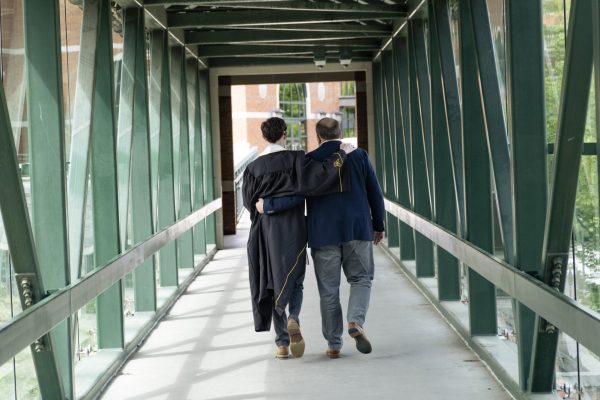Oscar-nominated “American Sniper” has made more than $204 million at the box office. In the movie’s wake, however, there’s been a surge in anti-Muslim hate speech.
The American Arab Anti-Discrimination Committee reported huge increases in threats against the organization and Muslim communities, and as entertainment news stories do, the controversy spread like wildfire.
The film is based on the memoir of Chris Kyle, a Navy SEAL credited with more than 160 kills in combat, making him the most lethal sniper in American history.
He is portrayed as a selfless soldier who joined the military for all the right reasons. He has a one-track mind, thinking only of his duty as a soldier. He is the classic archetype of the patriotic man.
There are a few things wrong with this, though.
In his memoir, Kyle refers to Iraqis as “savages” multiple times. While this type of speech is more predictable when in the heat of battle, there is a difference between saying it in a war and writing it in a book. In reality, Kyle was extremely prejudiced and anger-driven, and the movie glazes over this with only a few half-attempts at creating a balanced character. The opportunities to portray Kyle as more than just an American hero were quickly covered by something else, which is disappointing. The virtues and vices of Kyle’s life should be shown.
The Iraqis aren’t given any depth, either. Kyle’s targets – given it’s a movie from his perspective – are introduced with an air of suspicion.
The movie was not as anti-Muslim as much as it was anti-terrorist specifically, but the lack of depiction surrounding Iraqis that didn’t pose a threat was limited, unfortunately leaving it up to the viewer to decide what the movie’s sentiments were. As for the anti-Muslim influx on Twitter, I think people see what they want to see in movies. Those who came out with hateful viewpoints likely entered with them.
It’s clear the movie is not pro-war. Anyone who left the theater with this notion only saw it at a surface level. Although it’s a movie about war, battle scenes are extremely raw, with no glory attached. Kyle’s PTSD is portrayed effectively and there is an apprehension about war that stems from the characters.
I can imagine director Clint Eastwood’s message being easy to miss, and I’m disappointed he didn’t go all-out.
There was real potential for a strong anti-war film with a balanced protagonist, and it just didn’t reach that goal. Those theatrical missteps had real repercussions.
STORY: Madison Seale, Opinion Writer













Texas National Guard • Feb 5, 2015 at 9:38 pm
ALL soldiers dehumanize the enemy in an attempt protect their sanity for causing their deaths. Not just American soldiers…all soldiers. That dehumanization must naturally continue for years after they return home and perhaps for their entire lives. My great-grandfather refused to say “Japanese” until he was in his 60s. Before that, he always used the 3-letter version. Perhaps a college journalist who has never experienced the absolute terror and deprivation that a soldier in combat experiences should reserve judgment about those who live through a living hell.